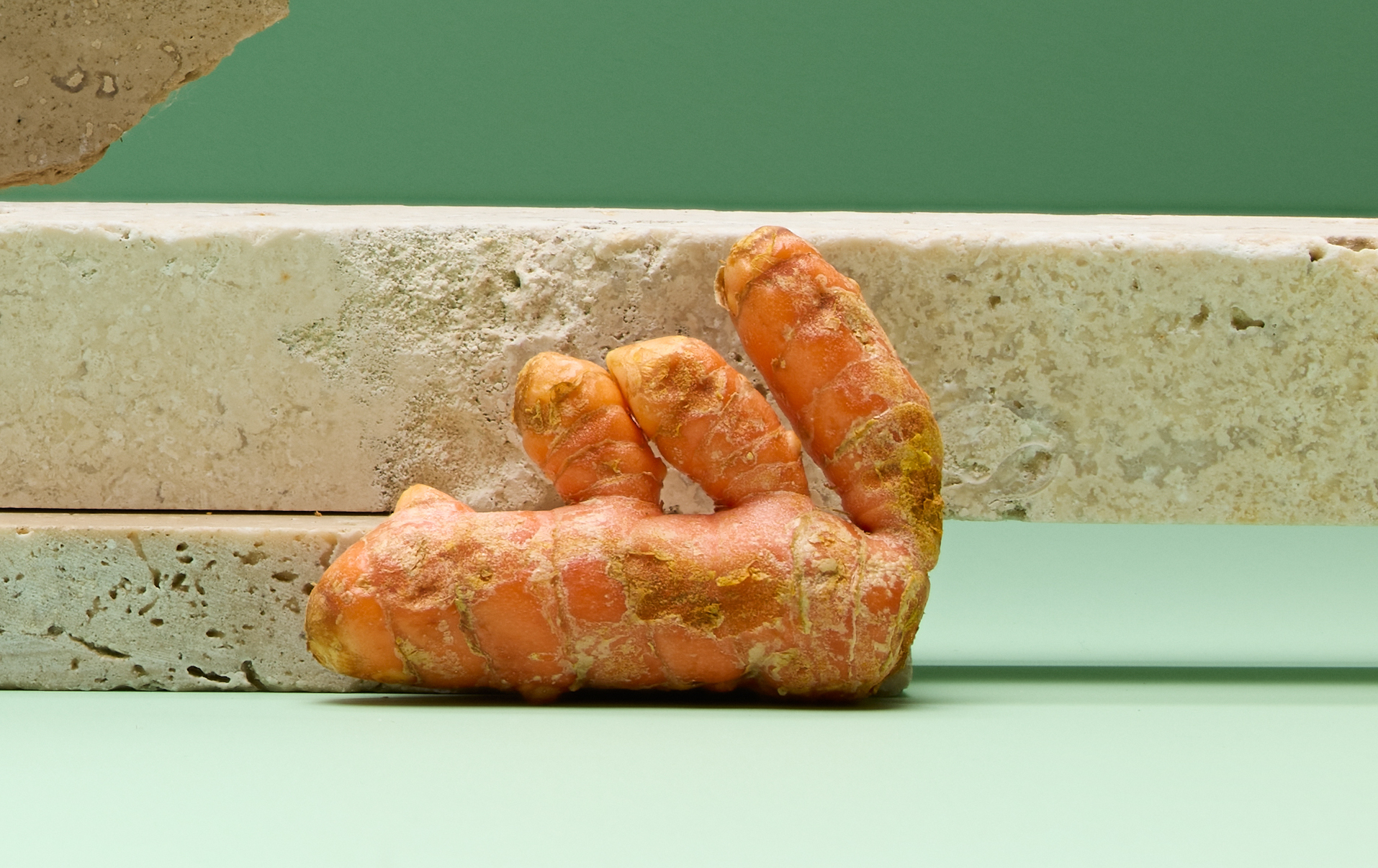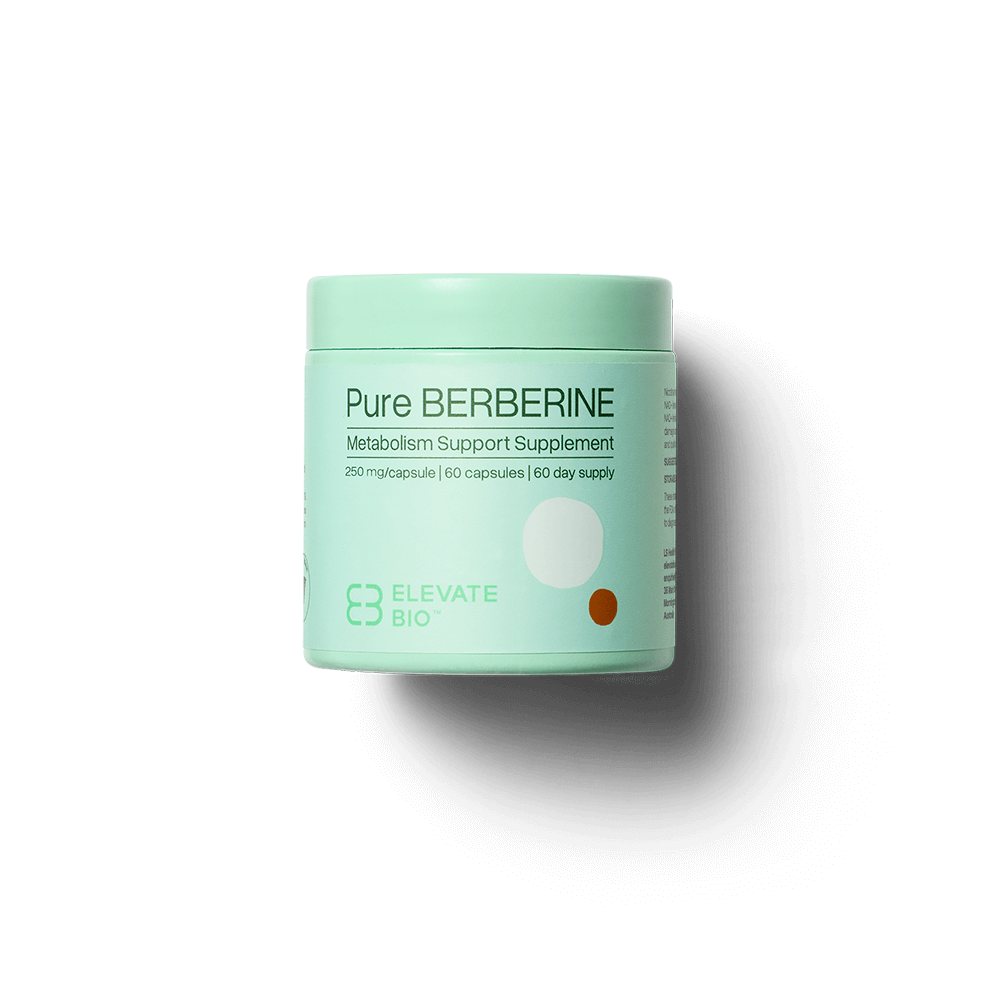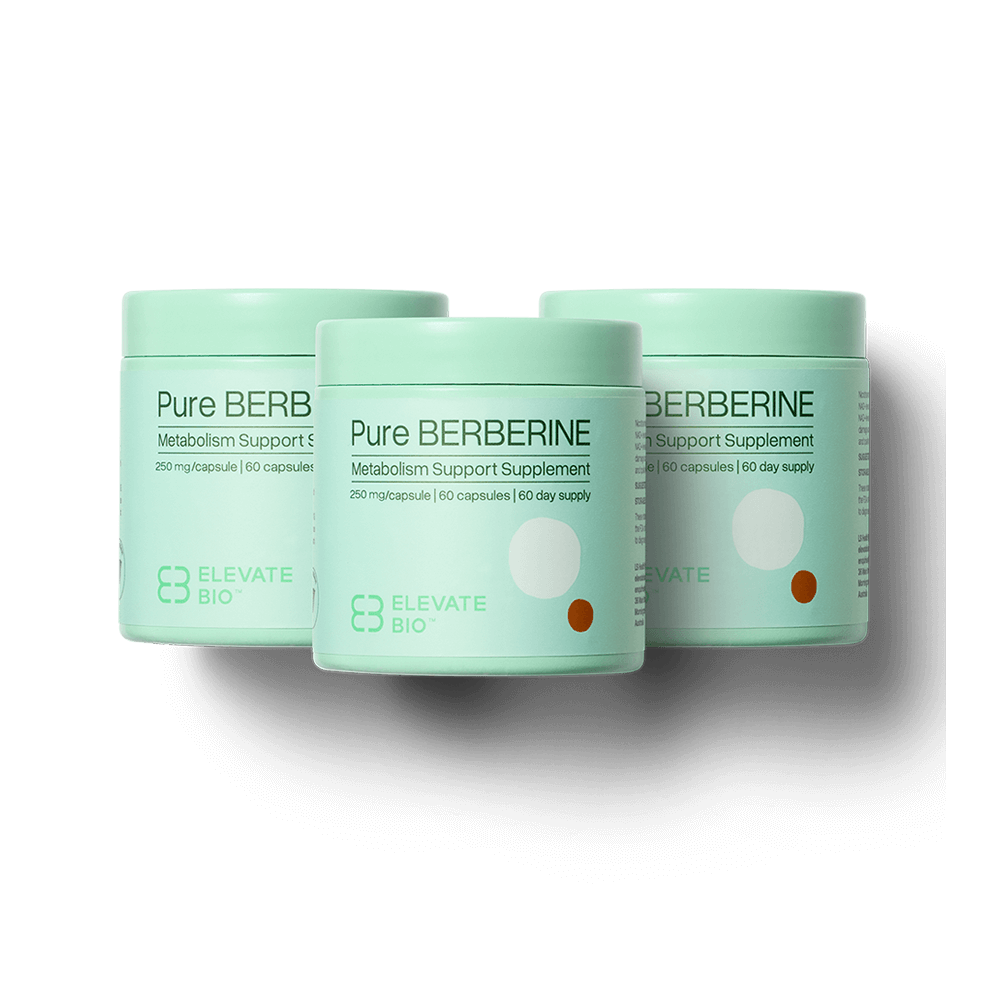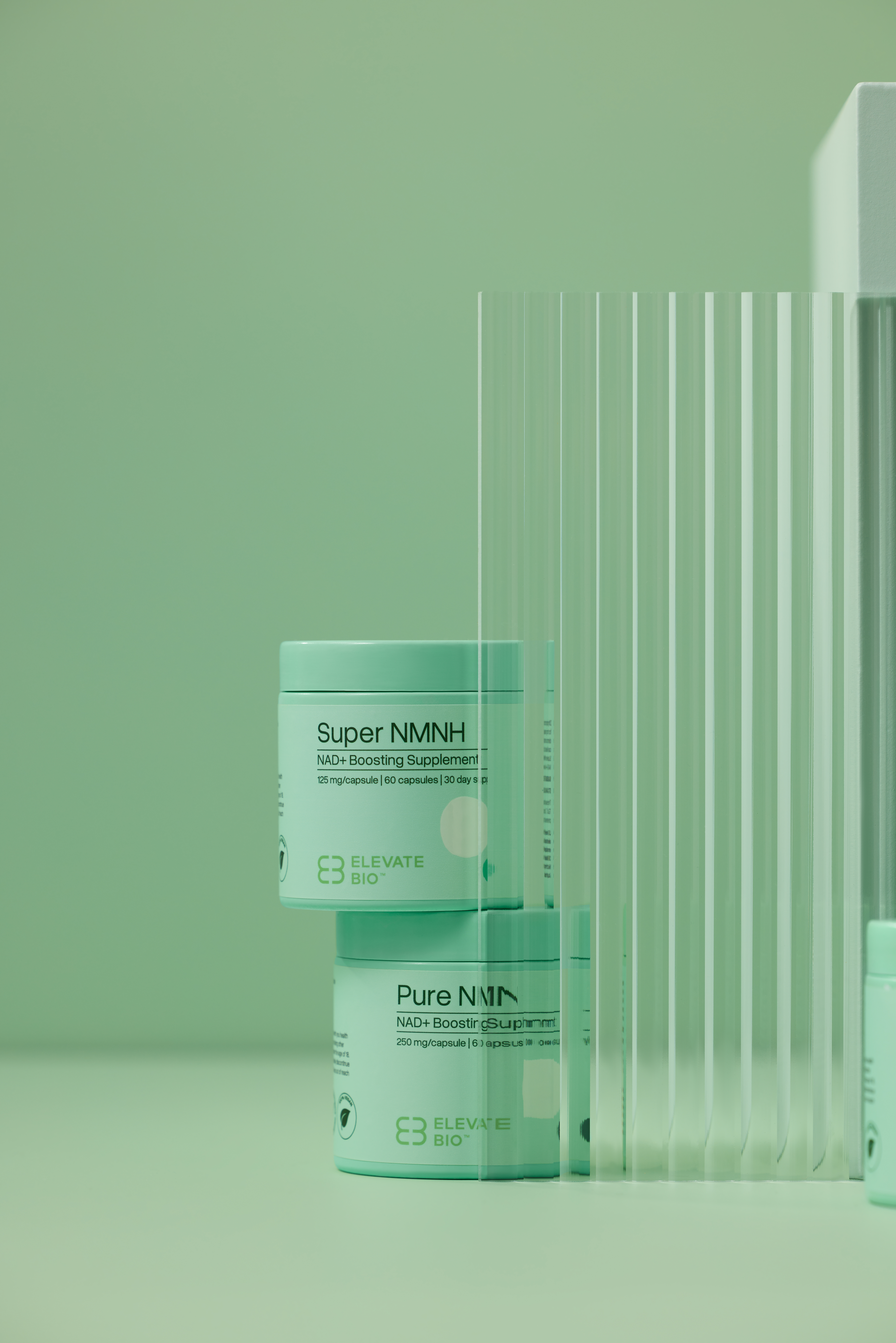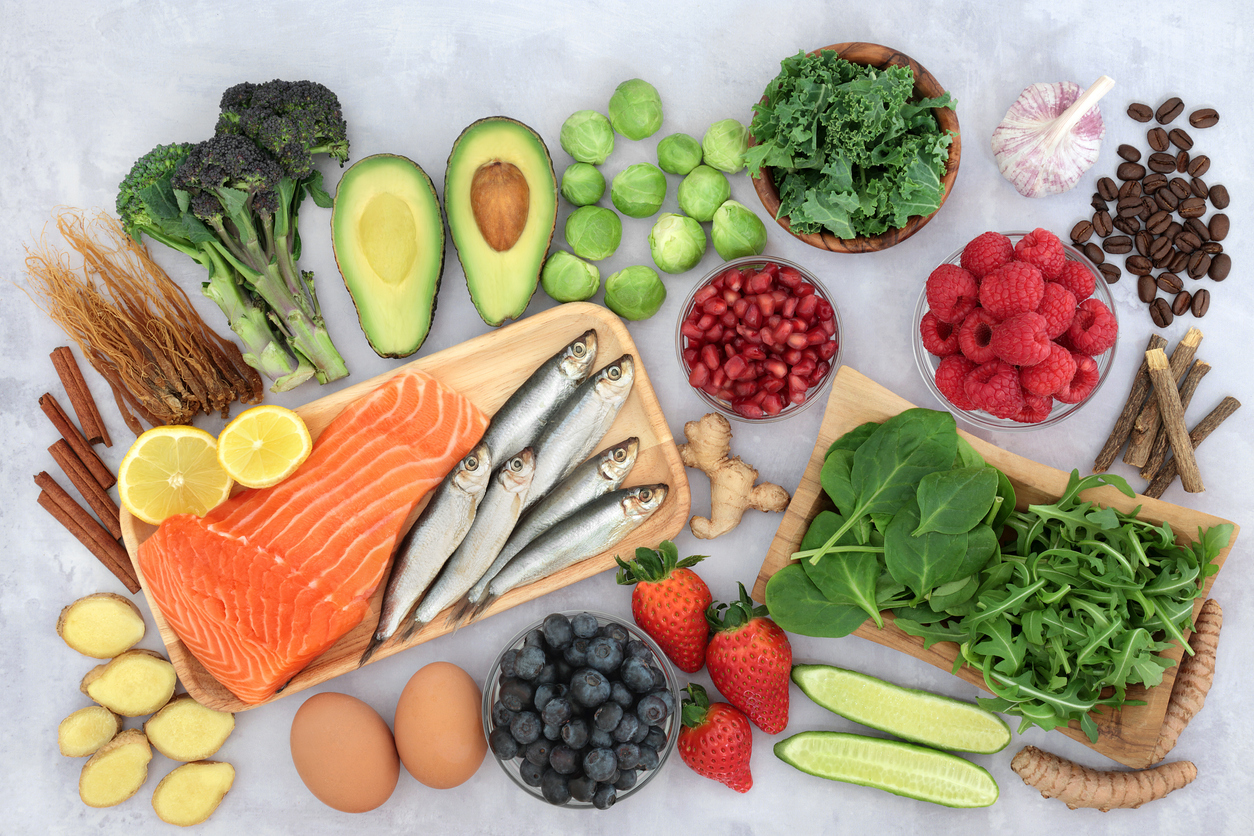Pure Berberine is classified as an alkaloid, a type of organic compound that often has pharmacological effects on humans.[i] Berberine is primarily extracted from the roots, rhizomes, stems and bark of several plant species including turmeric trees and barberry.[ii]
Pure Berberine has been used in traditional medicine systems, such as Chinese medicine for centuries.[iii] In recent years, Pure Berberine has become more prominent as a health supplement due to scientific research that shows its promising results in weight management.
History
Ancient times
Traditional Chinese Medicine
Berberine has been used for over 3,000 years in Traditional Chinese Medicine to treat various ailments, including gastrointestinal issues, infections, and inflammation. It was often extracted from plants like Chinese goldthread (Coptis chinensis).[iv]
Ayurveda
In Indian Ayurvedic medicine, Berberine-containing plants such as Berberis aristata (Indian barberry) have been utilised for their antimicrobial and anti-inflammatory properties.[v]
Middle Ages
Middle Eastern Medicine
Berberine was used in traditional Persian medicine for its antimicrobial properties and to treat gastrointestinal disorders.[vi]
European Medicine
During this period, knowledge of Berberine spread to Europe, where it was used in herbal remedies for similar purposes.[vii]
19th Century
Scientific Discovery
In the early 1800s, Berberine was isolated and identified as an active compound. This marked the beginning of more scientific studies into its properties.[viii]
Pharmacological Use
By the mid-19th century, Berberine started to be recognised in Western medicine for its antimicrobial properties and was used to treat infections such as cholera and bacillary dysentery.[ix]
Expanded Research
Throughout the 20th century, research on Berberine expanded, particularly in China and India. Studies focused on its broad-spectrum antimicrobial effects, including activity against bacteria, fungi, and viruses.[x]
Clinical Applications
Berberine began to be used for a wider range of conditions, such as diabetes, cardiovascular diseases, and metabolic syndrome, due to its various pharmacological effects, including glucose-lowering and lipid-regulating properties.[xi]
21st Century
Modern Medicine
In recent decades, Berberine has gained popularity in both traditional and integrative medicine. Numerous studies have investigated its potential benefits for conditions like type 2 diabetes, obesity, hypertension, and hyperlipidemia.[xii]
Supplement Market
Berberine is now available as a dietary supplement, often marketed for its metabolic health benefits. It is used as an adjunct therapy for managing blood sugar levels and cholesterol. Click here to shop our Pure Berberine.
Current and Future Research
Mechanistic Studies
Ongoing research is focused on understanding the molecular mechanisms of Berberine, such as its effects on AMP-activated protein kinase (AMPK), which plays a role in regulating metabolism.
Clinical Trials
More rigorous clinical trials are being conducted to validate the therapeutic effects of Berberine for various conditions and to establish standardised dosing and safety profiles.
Pure Berberine Benefits
Blood Sugar Regulation and Type 2 Diabetes
Pure Berberine has been shown to lower blood sugar levels and improve insulin sensitivity, making it a promising supplement for managing type 2 diabetes.
- Blood sugar regulation: In a meta-analysis of 28 randomised controlled trials, Berberine was found to significantly reduce fasting blood glucose, postprandial blood glucose, and HbA1c levels in patients with type 2 diabetes.[xiii]
- HbA1c reduction: Another study reported that Berberine reduced HbA1c by 0.9% on average, which is comparable to the effect of some standard diabetes medications.[xiv]
Cholesterol and Heart Health
Pure Berberine has been shown to improve cholesterol levels, which can contribute to better heart health.[xv]
- LDL cholesterol reduction: Studies indicate that berberine can reduce LDL cholesterol by 20-25%.[xvi]
- Triglyceride reduction: Berberine has also been found to lower triglyceride levels by around 30%.[xvii]
- HDL cholesterol increase: An increase in HDL cholesterol (the “good” cholesterol) has also been observed with Berberine supplementation.[xviii]
Weight loss
Some studies suggest that Pure Berberine may help with weight loss by improving metabolic functions and reducing body fat. It also helps regulate hormones related to fat storage and appetite.[xix]
- Body weight reduction: A 12-week study involving obese individuals found that Berberine supplementation led to an average weight loss of 2.3kg and a reduction in body fat percentage.[xx]
- BMI improvement: In another study, Berberine was shown to significantly decrease BMI and belly fat.[xxi]
Antimicrobial activity
Pure Berberine exhibits broad-spectrum antimicrobial activity against bacteria, fungi and viruses.[xxii]
- Bacterial infections: Berberine has been found to be effective against various bacterial strains, including those resistant to antibiotics.
- Fungal infections: It also shows antifungal activity, particularly against Candida species.
- Viral infections: Some studies suggest that Berberine may inhibit the replication of certain viruses, including influenza.
With countless health benefits, including blood sugar regulation, weight management, metabolic health and cardiovascular health, Pure Berberine’s potential as a therapeutic supplement for various health conditions is evident.
References:
[i] Tillhon, M, Ortiz, L, Lombardi, P & Scovassi, A 2012, ’Berberine: New perspectives for old remedies’, Biochemical Pharmacology, vol. 84, no. 10, pp. 1260-1267.
[ii] Prajwala, B, Raghu, N, Gopennath, TS, Shanmukhappa, B, Karthikeyan, M, Ashok, G, Ranjith, M, Srinivasan, V & Basalingappa, K 2020, ’Berberine And Its Pharmacology Potential: A Review’, European Journal of Biomedical And Pharmaceutical Science, vol. 7, no. 5, pp. 115-123.
[iii] Ye, Y, Liu, X, Wu, N, Han, Y, Wang, J, Yu, Y & Chen, Q 2021, ‘Efficacy and Safety of Berberine Alone for Several Metabolic Disorders: A Systematic Review and Meta-Analysis of Randomized Clinical Trials’, Frontiers in Pharmacology, vol. 12.
[iv] Kong, W, Wei, J, Abidi, P, Lin, M, Inaba, S, Li, Con, C, Wang, Y, Wang, Z, Si, S, Pan, H, Wang ,S, Wu, J, Wang, Y, Li, Z, Liu, J & Jiang, J 2024, ’ Berberine is a novel cholesterol-lowering drug working through a unique mechanism distinct from statins’, Nature Medicine, vol. 10, no. 12, pp. 1344-1351.
[v] Singh, A, Duggal, S, Kaur, J & Singh, J 2010, ‘Berberine: Alkaloid with wide spectrum of pharmacological activities’, Journal of Natural Products, vol. 3, pp. 64-75.
[vi] Amin, G 1991, ’Popular Medicinal Plants of Iran’, Advances in Infectious Diseases, vol. 4.
[vii] Och, A, Nowak, R 2021, ’Barberry (Berberis vulgaris) – Traditional and Contemporary Use’, Springer Nature, vol. 28, pp. 797-825.
[viii] Och, A, Nowak, R 2021, ’Barberry (Berberis vulgaris) – Traditional and Contemporary Use’, Springer Nature, vol. 28, pp. 797-825.
[ix] Och, A, Nowak, R 2021, ’Barberry (Berberis vulgaris) – Traditional and Contemporary Use’, Springer Nature, vol. 28, pp. 797-825.
[x] Yin, J, Xing, H & Ye, J 2008, ‘Efficacy of berberine in patients with type 2 diabetes mellitus’, Metabolism, vol. 57, no. 5, pp. 712-717.
[xi] Yin, J, Xing, H & Ye, J 2008, ‘Efficacy of berberine in patients with type 2 diabetes mellitus’, Metabolism, vol. 57, no. 5, pp. 712-717.
[xii] Yin, J, Xing, H & Ye, J 2008, ‘Efficacy of berberine in patients with type 2 diabetes mellitus’, Metabolism, vol. 57, no. 5, pp. 712-717.
[xiii] Liang, Y, Xu, X, Yin, M, Zhang, Y, Huang, L, Chen, R & Ni, J 2019, ’Effects of berberine on blood glucose in patients with type 2 diabetes mellitus: a systematic literature review and meta-anaylsis’, Endocrine Journal, vol. 66, no. 1, pp. 51-63.
[xiv] Yin, J, Xing, H & Ye, J 2008, ’Efficacy of berberine in patients with type 2 diabetes mellitus’, Metabolism, vol. 57, no. 5, pp.712-717.
[xv] Kong, W, Wei, J, Abidi, P, Lin, M, Inaba, S, Li, C, Wang, Y, Wang, Z, Si, S, Pan, H, Wang, S, Wu, J, Wang, Y, Li, Z, Liu, J & Jiang, J 2004, ’Berberine is a novel cholesterol-lowering drug working through a unique mechanism distinct from statins’, Nature Medicine, vol. 10, pp. 1344-1351.
[xvi] Kong, W, Wei, J, Abidi, P, Lin, M, Inaba, S, Li, C, Wang, Y, Wang, Z, Si, S, Pan, H, Wang, S, Wu, J, Wang, Y, Li, Z, Lui, J & Jiang, J 2004, ’Berberine is a novel cholesterol-lowering drug working through a unique mechanism distinct from statins’, Nature Medicine, vol. 10, pp. 1344-1351.
[xvii] Dong, H, Xu, Y & Liu, L 2012, ’Berberine reduces triglyceride levels in patients with hyperlipidemia: A meta-analysis of randomised controlled trials’, Planta Medica, vol. 78, no. 6, pp. 577-585.
[xviii] Zhang, Y & Zhang, L 2012, Berberine increases HDL cholesterol levels in patients with hyperlipidemia’, Journal of Clinical Lipidology, vol. 6, no. 6, pp. 464-470.
[xix] Ye, Y, Liu, X, Wu, N, Han, Y, Wang, J, Yu, Y & Chen, Q 2021, ‘Efficacy and Safety of Berberine Alone for Several Metabolic Disorders: A Systematic Review and Meta-Analysis of Randomized Clinical Trials’, Frontiers in Pharmacology, vol. 12.
[xx] Xu, M, Chen, J & Zhao, L 2014, ’Effects of berberine on body weight and fat mass in overweight or obese individuals’, Phytomedicine, vol. 21, no. 12, pp. 1811-1817.
[xxi] Chen, X, Li, J & Li, Y 2014, Effects of berberine on body mass index and abdominal fat in overweight obese patients’, Journal of Translational Medicine, vol. 12.
[xxii] Liu, X, Shang, X & Wang, Y 2014, ’Antimicrobial activity of berberine against bacteria, fungi and viruses’, Phytotherapy Research, vol. 28, no. 3, pp. 339-346.
